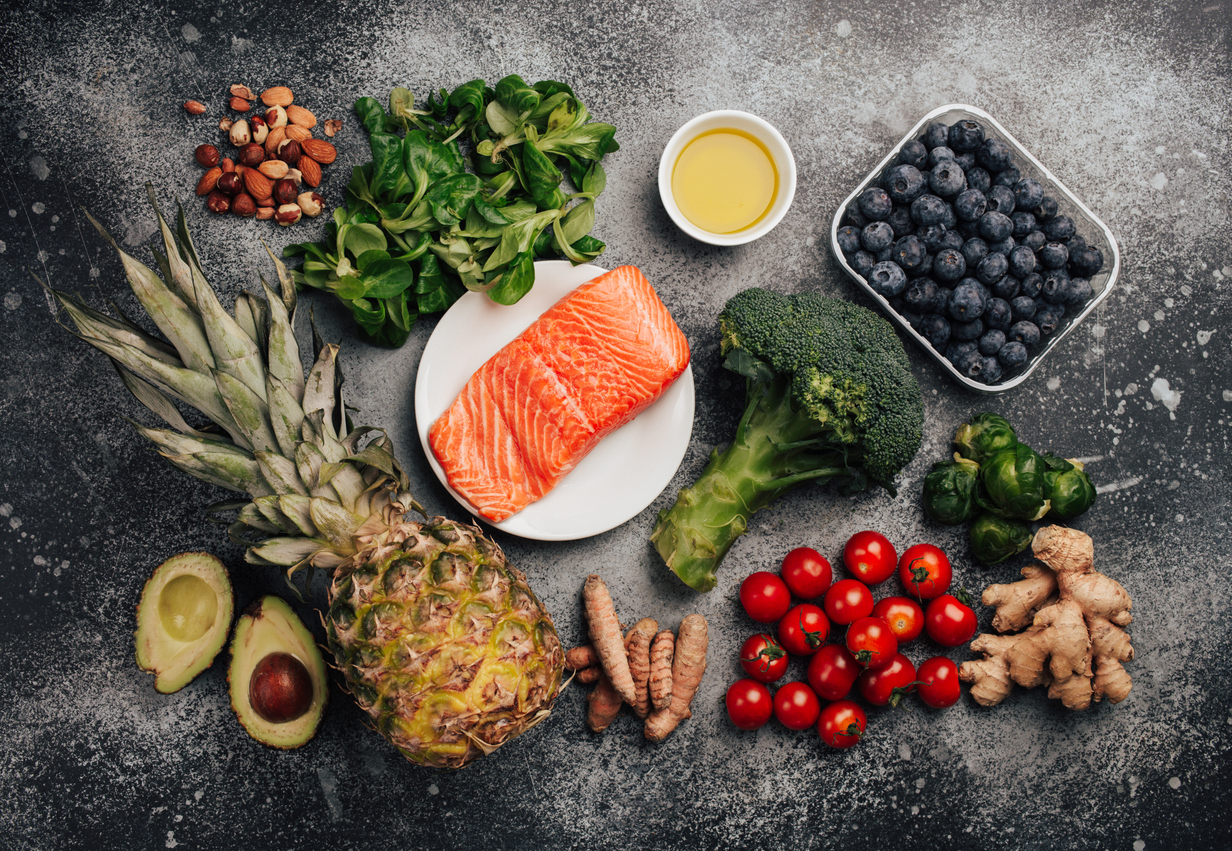Cortisol, Inflammation, and the Truth Behind the Hype

If you’ve spent any time on social media lately, you’ve likely seen terms like “cortisol face,” “cortisol spikes,” and “inflammation” everywhere. These buzzwords often come with warnings about drinking coffee on an empty stomach or exercising too intensely, sparking unnecessary fear and confusion.
Before you start cutting out your morning coffee or entire food groups to “lower cortisol” or “reduce inflammation,” let’s break down what these terms actually mean—so you can make informed choices without falling for the latest health scare.
What is Cortisol?
Cortisol is a hormone produced by the adrenal glands that belongs to a class of steroid hormones called glucocorticoids. It plays a crucial role in regulating metabolism, managing the body’s stress response, and reducing inflammation when needed.
Cortisol is often called the “stress hormone” because it’s released in response to various stressors, including:
- Exercise
- Infection or illness
- Surgery or injury
- Emotional or psychological stress
- Lack of sleep
- Fasting or extreme calorie restriction
When your body encounters stress, the adrenal glands release cortisol, signaling your body to mobilize energy from glucose, protein, and fat. This response is essential for survival, ensuring your body has enough energy to function during periods of physical or mental demand.
So if cortisol is so important, why does it have such a bad reputation? The issue isn’t cortisol itself—it’s chronically high levels of cortisol over time that can lead to health problems.
Acute vs. Chronic Cortisol Spikes
Not all cortisol spikes are harmful. In fact, short-term, or acute cortisol spikes, are completely normal and necessary. The key is understanding the difference between acute and chronic elevation.
Acute Cortisol Spikes (Normal & Healthy)
These short-term spikes occur in response to temporary stressors such as:
- Exercise (especially high-intensity workouts)
- Waking up in the morning (the cortisol awakening response)
- Fighting off an infection
- Recovering from surgery or an injury
These spikes help your body adapt and recover. For example, cortisol rises naturally in the morning to wake you up and provide energy. After a workout, cortisol helps mobilize fuel for muscle repair and recovery. Your body is designed to handle these fluctuations.
Chronic Cortisol Elevation (What We Want to Avoid)
Chronically high cortisol levels occur when stress is constant, leading to health issues such as:
- Increased inflammation
- Weakened immune function
- Weight gain (especially around the abdomen)
- Blood sugar imbalances
- Sleep disturbances
- Mood swings and fatigue
- Increased risk of conditions like high blood pressure or Cushing’s syndrome
Ironically, one of the biggest contributors to chronic cortisol elevation is extreme dieting and food restriction. When your body doesn’t get enough energy from food, it perceives starvation as stress, triggering cortisol release. Over time, chronic under-eating can increase inflammation and even lead to weight gain rather than weight loss.
What About Inflammation?
Like cortisol, inflammation isn’t always bad. It’s a natural immune response that helps your body heal and fight infections. However, prolonged or chronic inflammation can lead to negative health effects.
Acute Inflammation (Good & Necessary)
When you get a cut, sprain an ankle, or fight off a cold, your immune system triggers inflammation to help your body heal. This is a short-term and beneficial process.
Chronic Inflammation (Harmful & Prolonged)
When inflammation remains activated for long periods without an injury or infection to fight off, it can contribute to:
- Heart disease
- Diabetes
- Autoimmune disorders
- Obesity
- Digestive issues
So how can we prevent chronically high cortisol and inflammation? It all comes down to balanced nutrition and lifestyle habits.
How to Support Healthy Cortisol Levels and Reduce Inflammation
You don’t need extreme diets, expensive supplements, or food restrictions to balance cortisol and reduce inflammation. Instead, focus on consistency and balance in these key areas:
Avoid Extreme Diets & Food Restriction
Why? Chronic calorie restriction and prolonged fasting signal starvation stress to your body, increasing cortisol levels.
Balance Blood Sugar with Protein & Fiber
Why? Blood sugar fluctuations can spike cortisol and contribute to inflammation.
How? Include:
- Protein sources like eggs, yogurt, fish, and beans
- Fiber-rich foods like whole grains, vegetables, and fruits
Eat Antioxidant-Rich Foods & Polyphenols
Why? These nutrients help combat oxidative stress and inflammation.
Where to Find Them?
- Berries (blueberries, strawberries, blackberries)
- Leafy Greens (spinach, kale, arugula)
- Green Tea (rich in catechins)
- Dark Chocolate (70% cocoa or higher)
- Turmeric & Ginger (natural anti-inflammatories)
Include Omega-3 Fatty Acids
Why? Omega-3s support anti-inflammatory processes in the body.
Where to Find Them?
- Fatty Fish (salmon, sardines, mackerel)
- Nuts & Seeds (chia seeds, flaxseeds, walnuts)
Prioritize Gut Health with Fiber & Fermented Foods
Why? A healthy gut microbiome plays a major role in immune function and inflammation control.
Where to Find Them?
- Fiber (whole grains, vegetables, beans)
- Fermented Foods (yogurt, kefir, sauerkraut, kimchi)
Prioritize Sleep & Manage Stress
Why? Poor sleep and unmanaged stress disrupt cortisol regulation.
How?
- Aim for 7-9 hours of quality sleep
- Practice meditation, deep breathing, or mindfulness to reduce stress
Exercise Regularly (Without Overdoing It!)
Why? Movement helps regulate cortisol and inflammation.
How? A mix of strength training, low-impact activities (like walking), and enjoyable workouts is best.
The Bottom Line
Cortisol and inflammation aren’t the enemies—they’re essential processes that help your body function properly. The real issue is chronic elevation, which can often be managed through balanced eating, stress reduction, and smart lifestyle choices.
So, if you’re still wondering whether your morning coffee is making you gain weight—the answer is no! Just pair it with a protein- and fiber-rich breakfast, and you’re good to go. No unnecessary restrictions, no stress—just smart, sustainable nutrition.
Got questions or a topic you’d love to see covered next? Let me know—I’d love to hear from you!
